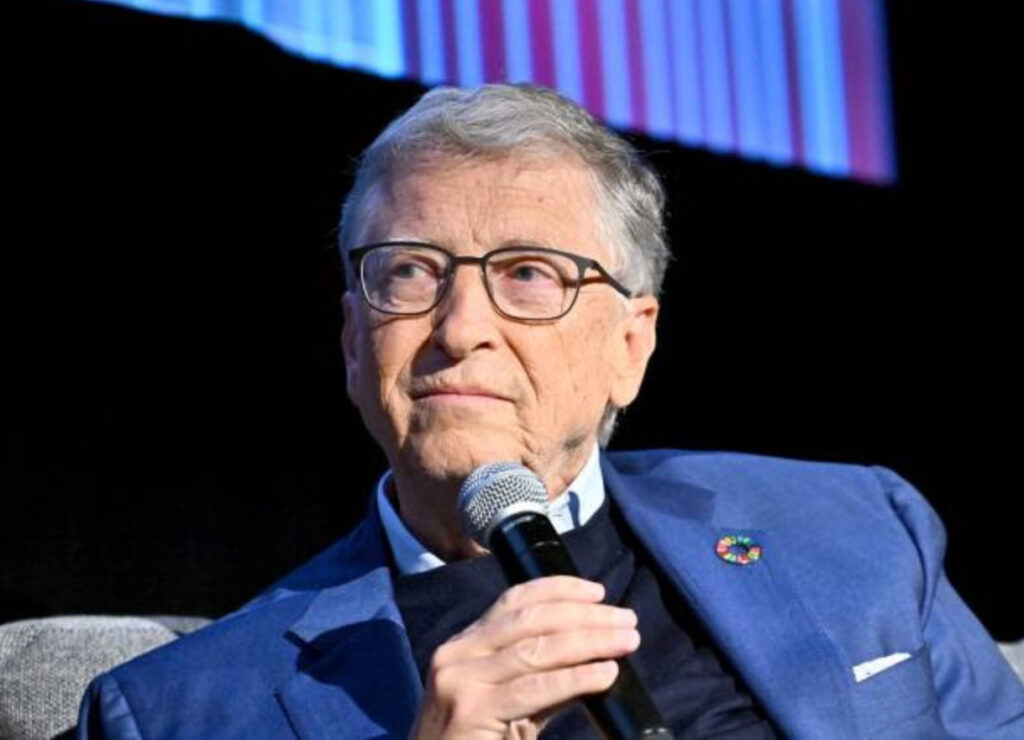For centuries, immense wealth has signified permanence—dynasties built to last, monuments funded by financiers, names carved into the stone of universities and opera houses. Yet, in a bold inversion of that legacy, Bill Gates, once the richest man on Earth, is charting a path toward disappearance—not of memory, but of fortune. As the Gates Foundation celebrates its 25th anniversary, its founder has declared a seismic shift: his intent to give away “virtually all” of his projected $200 billion fortune by 2045, when the Foundation itself will close.
It is a deadline-driven vision of philanthropy rarely seen in modern history: one man’s commitment not merely to redistribution, but to resolution. The diseases he seeks to extinguish—polio, malaria, measles, Guinea worm—are not abstract. The vaccines and therapies he aims to unleash are not gestures. For Gates, giving is not charity. It is an architecture of impact, a systems-based plan to dismantle suffering, one scalable intervention at a time.
This editorial explores the implications—philosophical, political, and moral—of Gates’s full-throttle philanthropy, placing it within a broader context of billionaire giving, global health ethics, and the urgency of accountability in the age of excess.
A Machine Built for Good: The Evolution of the Gates Foundation
Established in 2000 by Bill and Melinda Gates, the Gates Foundation quickly outpaced the traditional philanthropic model. It did not simply write checks or fund gala dinners. It operated more like a hedge fund for humanity—allocating capital where it could maximize measurable outcomes, particularly in the global South. With a sprawling agenda that included everything from mosquito nets to microloans, it quickly became the most influential private foundation in the world.
By 2020, the Foundation had disbursed over $50 billion, playing an outsized role in everything from eradicating neglected tropical diseases to shaping global policy on pandemic preparedness. Its footprint was controversial: admired by technocrats, criticized by anti-globalists, and watched carefully by economists wary of the power it wielded in weak governance regions.
And now, the machine is accelerating. Gates’s decision to endow the foundation with the majority of his remaining fortune—and to set a hard sunset date—represents a philosophical shift. Philanthropy is no longer open-ended. It is time-bound. Urgency, not legacy, is the new mandate.
The Timeline of Giving: Why 2045 Matters
The decision to shutter the Gates Foundation in 2045 is not symbolic—it is structural. In doing so, Gates commits to not hoarding philanthropic power across generations. This is a departure from institutions like the Ford Foundation or Carnegie Endowment, which were designed to last in perpetuity.
Why now? According to Gates, the answer is both practical and moral. “We have tools today that didn’t exist 10 years ago,” he said. “Delaying their deployment in the name of long-term stewardship is a kind of moral cowardice.”
By accelerating his giving, Gates aims to reduce the annual death toll of children from preventable diseases by half. That means tens of millions of lives saved over the next two decades. This isn’t speculative benevolence. It is triage with spreadsheets. Gates’s philanthropy has always been clinical—data-driven, science-aligned, and execution-oriented. His timeline makes sense for a man who built an empire on computing logic. Deadlines are not constraints—they are the conditions of greatness.
Health Capitalism: Vaccines, Viruses, and Value Systems
Gates’s priority areas for the next 20 years read like a manifesto against suffering: wipe out polio, squash malaria, unleash the first tuberculosis vaccine in a century, and democratize gene therapy to potentially cure HIV. He sees the planet as a site of uneven access to life itself—and his job, as he defines it, is to flatten that inequity.
Yet this techno-utopian approach invites controversy. Critics argue that the Gates Foundation, by operating parallel to government systems, often imposes Western solutions onto local contexts. Others warn that its reliance on private-sector partnerships blurs the line between aid and influence. Vaccine diplomacy, in particular, became a lightning rod during the COVID-19 pandemic, when Gates-funded entities played a powerful role in the development and distribution of vaccines, sometimes outpacing governmental efforts.
To his supporters, Gates is a visionary. To his skeptics, a sovereign. Both agree on one thing: he is a force. Either deploying mRNA technology in rural clinics or financing bioinformatics labs in Nairobi, Gates’s foundation can make things happen faster than many nations can. That reality is as awe-inspiring as it is unsettling. What happens when global health depends on a single billionaire’s will?
Power, Politics, and the Musk Rebuttal
In his recent interviews, Gates has not shied away from confrontation. When asked about the U.S. government’s waning foreign aid, he laid blame at the feet of Elon Musk—accusing him of undermining USAID, the agency responsible for American development assistance abroad. The quote was searing: Gates claimed Musk’s actions “were involved in the deaths of the world’s poorest children.”
Such a statement is not typical for Gates, who has historically maintained a diplomatic tone. But the urgency of his mission has seemingly made him less tolerant of ideological austerity masquerading as innovation. Where Musk dreams of colonizing Mars, Gates is focused on making Earth more habitable—for everyone. Their visions of impression are planetary, but diverge in direction. One looks up; the other looks around.
Their clash represents a deeper cultural tension: techno-escape vs. techno-repair. Musk seeks liberation from terrestrial decay. Gates seeks redemption within it. In this context, philanthropy is not merely about where the money goes—it’s about what future it imagines.
The Ethics of Urgency: Can Philanthropy Replace Policy?
Gates’s accelerated philanthropy raises uncomfortable questions. Should a single individual be tasked with solving systemic global issues? Can private foundations ever replace the role of democratic governance and multilateral institutions?
The answer lies in the nuance. Gates does not claim to replace public institutions—he seeks to augment them. Yet the scale of his giving (and the bureaucratic efficiency with which it is deployed) inevitably shifts power away from states and toward private decision-making. Even when Gates funds government programs, he sets the parameters. He is the architect, the investor, and the auditor.
This concentration of influence demands scrutiny. Philanthropy, at its best, is an accelerant. At its worst, it is a substitute for structural reform. Gates walks that line daily. His supporters see him as a rare figure who can build what policy neglects. His critics argue that if taxation systems functioned properly, men like him wouldn’t be necessary.
Yet here we are: global institutions weakened by austerity, U.S. foreign aid in retreat, and billionaires filling the void. The real question, perhaps, is not whether Gates should be doing this, but why no one else is.
Legacy by Erasure: The Art of Not Being Remembered
One of the most radical aspects of Gates’s announcement is what it rejects: legacy-building for its own sake. Unlike endowments named after barons or galleries etched with gold-leaf dedications, Gates is aiming for erasure. His fortune will not stretch into the 22nd century. His name may fade from hospitals. That, it seems, is the point.
This ethos mirrors that of “effective altruism,” a movement to which Gates has long been adjacent. It prioritizes results over recognition, impact over ego. But it also draws from deeper philosophical wells—particularly the Buddhist notion of impermanence. What matters is not who saved lives, but that they were saved at all.
In a world increasingly obsessed with personal brands and influencer philanthropy, Gates’s gesture reads as heretical. He doesn’t want his foundation to last forever. He wants its work to become unnecessary.
Flow
As 2045 looms on the horizon, Bill Gates has given the world a clock. Not just a deadline for his foundation, but a countdown for human potential. If diseases can be eradicated, if lives can be extended, if systems can be built with data and empathy—why wait?
Gates is betting on urgency, on intelligence, and on a kind of moral logic that demands we act now, not later. Whether one sees him as savior, meddler, or simply man-made consequence, the fact remains: he is attempting to build a world that does not need him.
And if he succeeds—if Guinea worm vanishes, if a tuberculosis vaccine rolls out globally, if HIV becomes curable in places where it was once a death sentence—then the question will not be what Gates did with his money, but what the rest of us did with our time.
No comments yet.








